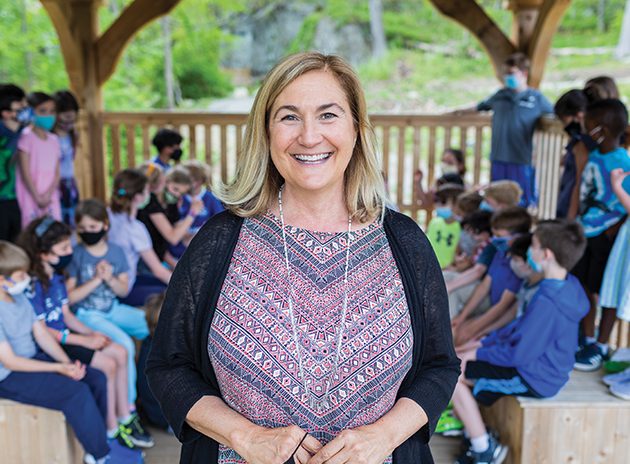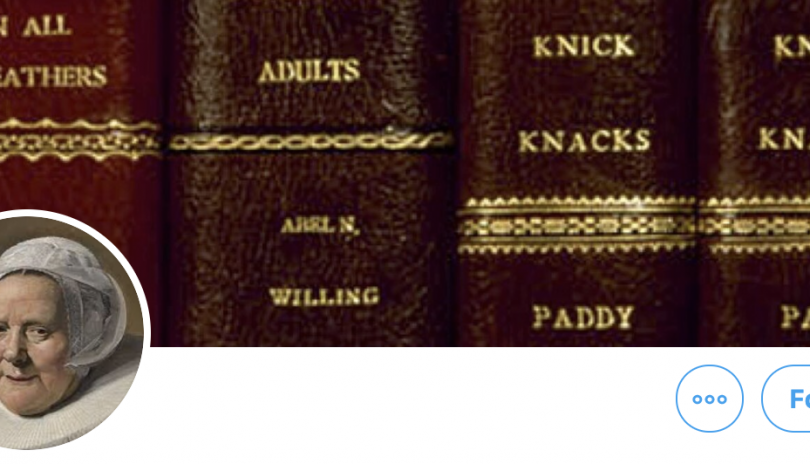Last spring, two of our faculty members, Duane Claussen and Gerry Clifford, read the book Grit by Dr. Angela Duckworth, sparking conversations about teaching and learning that led a group of DCD faculty, administrators, and staff to decide to read it together over the summer. During our opening faculty and staff meetings in late August, the group had a conversation about the book with Dr. Duckworth (who joined us by phone).
Dr. Duckworth’s book summarizes research into grit, a term she uses to describe the combination of passion and perseverance that leads to outstanding achievement.
One of the goals of a DCD education has always been to help children discover their passions and to instill in them the perseverance to pursue them. Dr. Duckworth spoke with us about how this process takes place in her home with her own children. She explained how each person in her family is required to follow the “hard thing rule.” They each choose something they want to get better at with deliberate practice and feedback, and must spend time each day towards this goal. For example, one of Dr. Duckworth’s daughters committed herself to baking, getter better at understanding the role of each ingredient in a recipe and perfecting her cake-decorating techniques. Perhaps her daughter will become a famous pastry chef, but the goal of this rule in Dr. Duckworth’s home is not the outcome, but rather the process. Dr. Duckworth hopes the “hard thing rule” develops in her children the capacity for hard work and deliberate practice and the habit of applying that capacity to a goal they value.
Our conversation led us to discuss many topics: the way rigor and play interact; how one builds a gritty culture; the developmentally appropriate ways a child’s perseverance develops over time; the intersection of resilience research and grit research; the role of a “flow” state in learning; and the best ways to develop internal motivation in children. We talked about Duckworth’s optimistic framework that everyone can get better at being “gritty,” and discussed how our words and actions as educators can support that process. It was a wonderful conversation, and one that left me grateful again for DCD’s thoughtful, reflective, and engaged adults.
As Duckworth’s children got older, the “hard thing rule” was given a partner, the “fun thing rule.” When following the “fun thing rule,” one pursues something simply for the joy of doing it. She hopes this keeps alive in her children their capacity for wonder and their ability to seek and find what is interesting and sustaining in the world. She emphasized that developing passion takes time and that wide exploration in one’s childhood and teens is the best way to discover a passion in the future.
Dr. Duckworth ended by talking about her hope for her children and others. Ultimately, she hopes that their “hard thing” and their “fun thing” can be one and the same. This dynamic is squarely in place for DCD’s adults. It is a “hard thing” to bring together a group that is diverse in all ways — age, learning style, background, temperament, identity — and build a learning environment that meets everyone’s needs, teaches skills, stretches children’s capacities, and fosters community. At the same time, this “hard thing” is also a “fun thing,” since DCD’s adults are passionate about sustaining DCD’s mission and creating an atmosphere where “learning is a way of life.”
While Dr. Duckworth’s book sparked a great conversation about grit, it is important to keep in mind that grit is just one of many capacities people need to thrive. Dr. Duckworth concludes her book by stating that she wants both greatness and goodness for her children and acknowledging the many capacities — whether social intelligence, zest, or curiosity — that are essential to building purposeful and connected lives.








